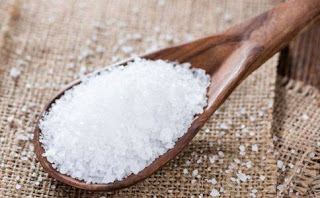Diabetes Patients can Have Sugar
Diabetes patients should be careful about the type of sugar they include in their diet.
In the past, when someone was diagnosed with Diabetes, they were told they should not eat sugar. The thinking was that sugar affected blood sugar more than complex carbohydrates (table sugar compared to a slice of bread).
That thinking has shifted. Sugar has no greater effect on blood sugar than complex carbohydrates. All carbohydrates are considered fairly equal as far as affecting blood sugar.
According to the American Diabetes Association, ‘the bottom line for blood glucose control is to focus on the total amount of carbohydrate you eat - not the source of the carbohydrate.’
Diabetes patients can have some sugar food that are healthy to eat. Milk, yogurt, and fruits are high in simple sugars but do contain vitamins and minerals. These foods should be incorporated in the diet. Portion sizes should be noted.
Eight fluid ounces of milk or 8 oz. of yogurt is considered a serving. Low fat or fat free dairy products will help save calories.
One small orange or apple, 3/4 cup of berries, or 1 cup of melon is a serving of fruit. Fruits provide vitamins and fiber which help delay sugar absorption into the blood. Fruit juices do not contain fiber and should be limited. Serving sizes of juice are 1/3-1/2 cup depending on the juice. A serving of light cranberry cocktail juice is 8 fl. oz.
Some sugars are avoided for diabetes patients. Sugary snacks are often termed ‘empty calorie’ foods. These foods do not contain much nutritional value but contain calories and fat. Empty calorie foods include cookies, cakes, ice cream, etc. Everyone should limit empty calorie foods, not just those with diabetes or pre-diabetes.
Complex carbohydrates are another category of carbohydrates. Examples of complex carbohydrates are bread, rice, pasta, and potatoes. Understanding portion sizes will help you to plan your meals more effectively. One serving equals 1 slice of bread, 1/3 cup rice, 1/3 cup pasta, or 1 6-inch tortilla. Focusing on whole grain complex carbohydrates helps increase fiber.
The main goal with Diabetes is controlling blood sugar and avoiding complications. Eating even amounts of carbohydrates throughout the day can help control blood sugar. Be aware of eating "empty calorie" carbohydrates and eat a variety of carbohydrate containing foods. Diabetes patients can have a few sorts of sugar. Remember all types of carbohydrate that will increase blood sugar. Choose carbohydrates that will provide your body with the most benefit more often.
In the past, when someone was diagnosed with Diabetes, they were told they should not eat sugar. The thinking was that sugar affected blood sugar more than complex carbohydrates (table sugar compared to a slice of bread).
That thinking has shifted. Sugar has no greater effect on blood sugar than complex carbohydrates. All carbohydrates are considered fairly equal as far as affecting blood sugar.
According to the American Diabetes Association, ‘the bottom line for blood glucose control is to focus on the total amount of carbohydrate you eat - not the source of the carbohydrate.’
Diabetes patients can have some sugar food that are healthy to eat. Milk, yogurt, and fruits are high in simple sugars but do contain vitamins and minerals. These foods should be incorporated in the diet. Portion sizes should be noted.
Eight fluid ounces of milk or 8 oz. of yogurt is considered a serving. Low fat or fat free dairy products will help save calories.
One small orange or apple, 3/4 cup of berries, or 1 cup of melon is a serving of fruit. Fruits provide vitamins and fiber which help delay sugar absorption into the blood. Fruit juices do not contain fiber and should be limited. Serving sizes of juice are 1/3-1/2 cup depending on the juice. A serving of light cranberry cocktail juice is 8 fl. oz.
Some sugars are avoided for diabetes patients. Sugary snacks are often termed ‘empty calorie’ foods. These foods do not contain much nutritional value but contain calories and fat. Empty calorie foods include cookies, cakes, ice cream, etc. Everyone should limit empty calorie foods, not just those with diabetes or pre-diabetes.
Complex carbohydrates are another category of carbohydrates. Examples of complex carbohydrates are bread, rice, pasta, and potatoes. Understanding portion sizes will help you to plan your meals more effectively. One serving equals 1 slice of bread, 1/3 cup rice, 1/3 cup pasta, or 1 6-inch tortilla. Focusing on whole grain complex carbohydrates helps increase fiber.
The main goal with Diabetes is controlling blood sugar and avoiding complications. Eating even amounts of carbohydrates throughout the day can help control blood sugar. Be aware of eating "empty calorie" carbohydrates and eat a variety of carbohydrate containing foods. Diabetes patients can have a few sorts of sugar. Remember all types of carbohydrate that will increase blood sugar. Choose carbohydrates that will provide your body with the most benefit more often.




评论
发表评论